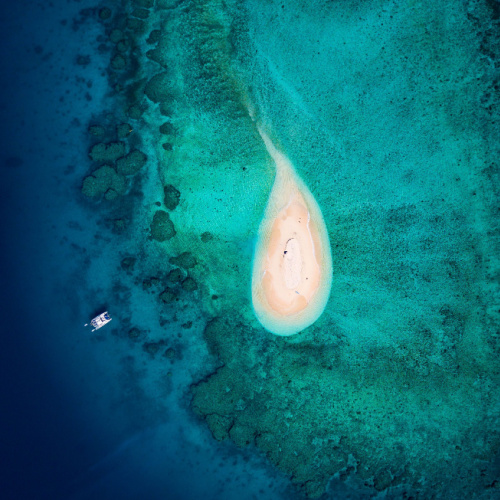
Mel Campbell Creative/Shutterstock
When Is the Best Time to Visit Fiji?
The best time to visit Fiji is during the shoulder seasons of May to June and September to October. During these months, the weather is generally mild and sunny, with fewer crowds and lower prices than during the peak winter season.
Benefits of visiting Fiji during the shoulder seasons:
- Mild weather: Fiji has a tropical climate, with warm temperatures and humidity year-round. However, the shoulder seasons offer the best chance of mild weather, with less rainfall and more sunshine. This makes it ideal for enjoying the country’s many outdoor activities, such as swimming, sunbathing, and hiking.
- Fewer crowds: Fiji is a popular tourist destination, but the shoulder seasons are less crowded than the peak winter season. This means you’ll be able to enjoy the country’s attractions without having to deal with large crowds.
- Lower prices: Prices for flights, accommodation, and activities are generally lower during the shoulder seasons than during the peak winter season. This means you can save money on your trip without having to sacrifice quality.
Specific examples of how you can enjoy the most of Fiji during the shoulder seasons:
- May to June: The weather in May and June is typically sunny and warm, with occasional showers. This is a great time to visit the Mamanuca Islands, the Yasawa Islands, and the Kadavu Islands. You can go swimming, snorkeling, diving, fishing, and surfing.
- September to October: The weather in September and October is also typically sunny and warm, with occasional showers. This is a great time to visit the Yasawa Islands, the northern Lau Islands, and the Lomaiviti Islands. You can go hiking, camping, and visit traditional villages.
While it is possible to visit Fiji at any time of year, the shoulder seasons of May to June and September to October offer the best combination of mild weather, fewer crowds, and a variety of activities and attractions to choose from.
 Average Temperatures by Month
Average Temperatures by Month
|
Jan |
Feb |
Mar |
Apr |
May |
Jun |
Jul |
Aug |
Sep |
Oct |
Nov |
Dec |
| Fahrenheit |
86°
|
86°
|
86°
|
84°
|
82°
|
80°
|
79°
|
80°
|
81°
|
83°
|
84°
|
85°
|
| Celsius |
30°
|
30°
|
30°
|
29°
|
28°
|
27°
|
26°
|
27°
|
27°
|
28°
|
29°
|
29°
|
Climate in Fiji
Summer Season in Fiji
Often referred to as 'summer' in Fiji, the wet season is characterized by higher temperatures and increased humidity, with frequent and sometimes heavy rainfall. This season is also associated with the South Pacific cyclone season, where tropical cyclones may occur. Despite the rain, the temperatures remain warm, and the landscape is lush and vibrant, making it a good time for snorkeling and exploring the islands' natural beauty.
Rainy Season in Fiji
The dry season, often equated to 'winter' in Fiji, brings cooler temperatures and lower humidity, with less frequent rainfall. This is the peak tourist season, offering ideal conditions for outdoor activities like diving, swimming, and beach-going. The weather is generally sunny and pleasant, making it perfect for exploring the islands and enjoying the diverse cultural experiences Fiji offers.
Winter Season in Fiji
In the traditional sense, Fiji does not experience a winter with cold weather. The closest to 'winter' would be the dry season, where the temperatures are slightly cooler compared to the wet season, but the climate remains warm and tropical, suitable for beach and water activities. The concept of winter, as understood in temperate regions, does not apply to Fiji's tropical climate.
Our Recommendations
| Destination |
Jan |
Feb |
Mar |
Apr |
May |
Jun |
Jul |
Aug |
Sep |
Oct |
Nov |
Dec |
| Fiji |
 |
 |
 |
 |
 |
 |
 |
 |
 |
 |
 |
 |






